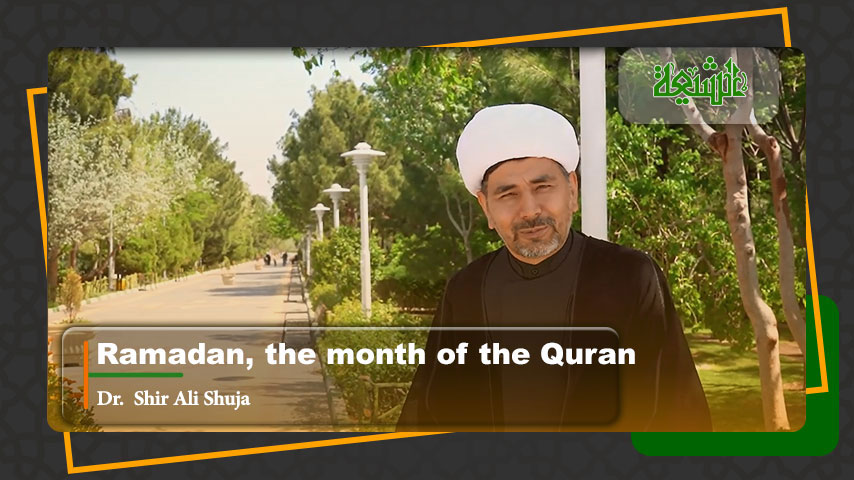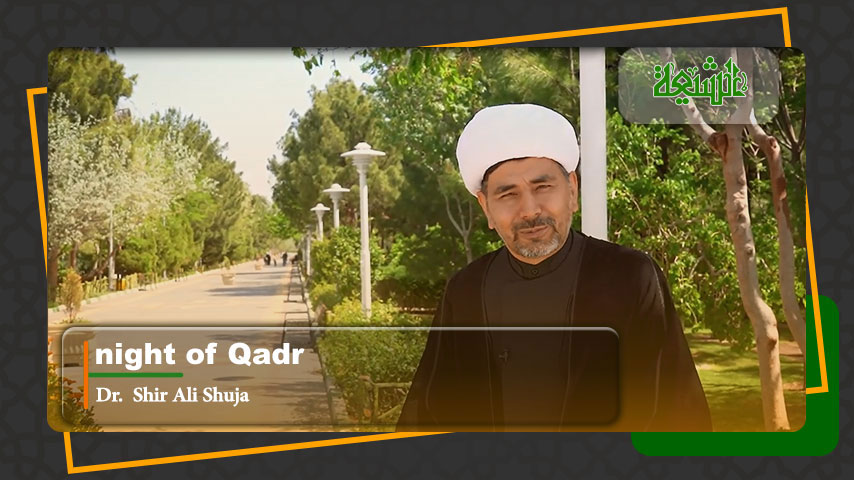In this part of the article titled “Islamic background of Western Renaissance”, we shall discuss the numerous influences of Islam and the Muslims, particularly in the Mediaeval age to the Western Renaissance.
Muslims’ Influences on the West
The Muslims, who were pioneers in almost all branches of learning led the West in diverse spheres of mediaeval thought.
“The mission of mankind was accomplished by Muslims”, writes George Sarton, The greatest philosopher, Al-Farabi was a Muslim, the greatest mathematicians, Abul Kamil and Ibrahim Ibn Sina were Muslims; the greatest geographer and encyclopedist, al-Masudi was a Muslim; the greatest historian, Al-Tabari was still a Muslim”.
The influence of the Muslims could be traced in almost all spheres of life in the Mediaeval West including sciences and arts, commerce and industry, music and painting. The brightest luminaries of the Mediaeval times were Jabir, Kindi, Jahiz and Baytar in sciences; Zakariya Razi, Ibn Sina and Zahrawi in medical science; Khwarizmi, Omar Khayyam, Abul Wafa and Nasiruddin Toosi in mathematics and astronomy; Farabi, Ibn Sina, Ghazali, Ibn Rushd, Ibn Arabi and Fakhruddin Razi in philosophy; Tabari, Ibn Miskawayh, Ibn Athir and Ibn Khaldun in history; Masudi, Idrisi and Ibn Hauqal in geography; Farabi, Zalzal, Ziryab and Ibrahim Mausili in music; Behzad, Maani and Raza Abbasi in painting.
They have left behind on the pages of history the imprint of their genius in the respective branches of their activity. And a number of their works served as standard textbooks both in the West as well in the East till the beginning of the 18th century A.D.
The Arabs were the real originators of sciences in the world. Discarding the speculative method of the Greeks, they based their scientific research on observation and experiment which gave birth to the experimental method.
This experimental method introduced by the Arabs was in fact, responsible for the rapid advancement of science during the mediaeval times.
Jabir, the father of modern chemistry was the greatest chemical scientist of the mediaeval times whose writings influenced the course of European alchemy and chemistry.
The Kilab Al-Haywan written by Jahiz is an invaluable book on zoology containing germs of, later theories on evolution, adaptation and animal psychology. Ibn al-Baytar is universally acknowledged as the most eminent botanist of Mediaeval times.
According to the Historians’ History, it was from Ibn al-Haytham’s Twilight that the illustrious Kepler took his ideas of atmospheric refraction and “it may be that Newton himself owes to the Arabs, rather than to the apple in his orchard at Woolsthorpe the first apperception of the system of the universe, for Muhammad Ben Musa seems when writing his books on the movements of the celestial bodies and on the Force of Attraction, to have had an inkling of the great law of general harmony.”
In medical science, Al-Razi’s AI-Hawi (Continens) in 20 volumes and Al-Judari wal Hasbah (a book dealing with smallpox) which ran into more than fifty editions from 1498–1866.
Ibn Sina’s (Avicenna’s) AI-Izanun Fi Tibb (Canon) was published 36 times and surgeon Zahrawi’s al-Tasrif was recognised as the highest authority on medicine during the mediaeval era. Avicenna’s influence on European medicine has been overwhelming.
In mathematics and astronomy, the works on algebra written by Khwarizmi and Omar Khayyam, books on geometry and trigonometry left behind by Abul Wafa, Nasiruddin Toosi and the treatises on astronomy by Khwarizmi, Omar Khayyam, Al-Beruni and Nasiruddin Toosi are the most outstanding contributions to these sciences during the middle ages. The translation of Khwarizmi’s algebra marked the beginning of European algebra.
The introduction of zero to arithmetic by the Arabs was a highly beneficial step towards the simplification of arithmetic. The Muslims had specialized in historiography and political science which were their favourite subjects.
Tabari, the father of Arabian historiography is considered one of the greatest historians of the mediaeval era, who has influenced the art of writing history both in the East and the West.
Ibn Khaldun, the founder of the science of sociology has the unique distinction of treating history as a science by supporting his facts with reasoning.
More than any historian, Ibn Khaldun has influenced modern thought in historiography, politics, sociology and political economy.
Among the eminent travellers, explorers and navigators who brought the distant parts of-Mediaeval world closer through their discoveries and writings are Ibn Batuta, Masudi, Beruni, Ibn Hauqal, Moqaddasi, Sulaiman Al-Mahiri and Ibn Majid. They also paved the way for the growth of Arabian commerce which was carried on with distant parts of the known world both through land and sea routes. The products of the highly developed industries in Muslim countries found good markets throughout the world.
In fine arts and music too, Muslim artists influenced their European counterparts and the musicians Farabi, Ishaq Mausili, Zalzal and Ziryab; the painters Maani and Behzad were the greatest figures of their time in the respective spheres of their arts.
Muslims had developed a distinctive style of their own in architecture and built some of the most magnificent and beautiful buildings in the world including Alhambra, the Grand Mosque of Cordova in Spain, the mosque of Ibn Tulun in Cairo, the grand mosque of Isfahan and the Taj Mahal of Agra. These are even now recognized as the architectural wonders of the world.
Thus the Muslims kept aloft the candle of civilization during the Mediaeval era and their contributions to the advancement of human progress provided the necessary link between the ancient and modern civilizations.
The Islamic universities of Nizamiyah and Mustansariya in Baghdad, the Al-Azhar of Cairo, and the universities of Cordova and Salerno diffused knowledge to students composed of all communities who flocked to these seats of learning from distant parts of the world including Europe.
The four factors
The four factors, which are generally recognized by European Historians as the basis of the Western Renaissance are:
1: The recovery of Greek Classics,
2: The diminution of ecclesiastical authority,
3: The discovery of the New World, and
4: The introduction of the Printing Press.
But, curiously enough these factors more or less result from the impact of Islamic culture on the west. The Islamic influence may easily be traced to the birth and growth of these factors that are said to have brought about the renaissance in Europe.
As regards the Greek Classics, it is universally admitted both in the East and the West that it was the Arabs who patronized and saved them from total extinction.
Hence the Greek classics existed in Arabic version only, which were later translated by the Christian scholars into European languages. The Historians History admits:
“They (Arabs) merit eternal gratitude for having been the preserver of the learning of Greeks and Hindus when those people were no longer producing anything and Europe was still too ignorant to undertake the charge of the precious Depot. Efface the Arabs from history and the Renaissance of letters will be retarded in Europe by several centuries”.
Writing in the History of Medicine in the Middle Ages, Max Kahn observes,
“The tolerance of Arabs was the saving grace of civilization. They relit the lamp of learning which had been extinguished in Europe, and the light of Hippocrates, Aristotle and Galen illuminated the mosques and cloisters of infidels”.
According to Dr F. J. C. Hearnshaw, writer of the Chapter on “European Life and Manners” (1) of the Universal History of the World,
“Christian students repaired to Islamic schools to learn the wisdom of the ancients and to gain the secrets of those arts and crafts which made Muhammedian Spain famous throughout the world. It was by way of Spain that the long lost works of Aristotle reached Western Christendom, to revolutionize scholastic Philosophy and Theology.”
According to Stanley Lane-Poole “What mediaeval Europe knew of Greek Philosophy, Mathematics, Chemistry, Astronomy and Medicine was learned principally through Latin translations. From Arabic treatises which held their places in the schools of Europe down to the sixteenth and even well into the seventeenth century.” (2)
The second factor namely the diminution of religious authority in the Christian authority was caused by Reformation and Crusades.
Martin Luther, who was the founder of the Reformation was so much influenced by Islamic culture that he was accused of being a Muhammadian by the orthodox Christians.
The Crusaders, bailing from different parts of Christian Europe came in direct contact with Muslims in the Holy Land and were deeply influenced by the Islamic culture. On return, they introduced those reforms to their life which greatly weakened the hold of the Church on the common Christian. Dr B. W. Stevenson says in the Chapter on “The Spirit and Influence of the Crusades” (3) of The Universal History of the World:
“The learning and art and science of the East, its public services and methods of government, its highly developed industries and the superior luxury and comfort of the domestic life of its upper classes, exerted a powerful and far-reaching influence upon Europe in the Crusading period.” (4)
Another historian of the Crusades, Dr Henry Elmer Barnes, says in his History of Western Civilization “The Westerners learned many Muslim and Oriental ways and developed a taste for the luxuries of the region”. (5)
All this promoted a demand for Eastern goods and accelerated the growth of commerce. The Italians, who had acted as transporting agents for the Crusaders, took full advantage of their opportunities to build up trading relations with the East.
Travel was promoted, and the explorations of Marco Polo and others followed on the heels of the Crusaders. This still further encouraged trade between Europe and the Orient. The revived trade promoted the rise of towns and a more progressive element in European life.
The science and culture of the Muslims were brought back to Europe and helped to create the remarkable intellectual revival of the twelfth and thirteenth centuries”.
The third factor namely the discovery of America was actually the outcome of Arab efforts. The latest research carried on by Dr Jeffrey, the celebrated anthropologist of South Africa has proved that Arabs discovered America five centuries ahead of C. Columbus.
The fourth factor namely the invention of the Printing Press is also indirectly connected with the introduction and large-scale production of paper in Europe by the Arabs. Without paper, there would have been no Printing Press.
NOTES:
_______________________
- Volume 6
- The chapter on “Golden Age of Arab Culture” in Vol. IV. of the Universal History of the World
- Volume 3
- 7 Volumes., London, 1928
- Vol. I.
















